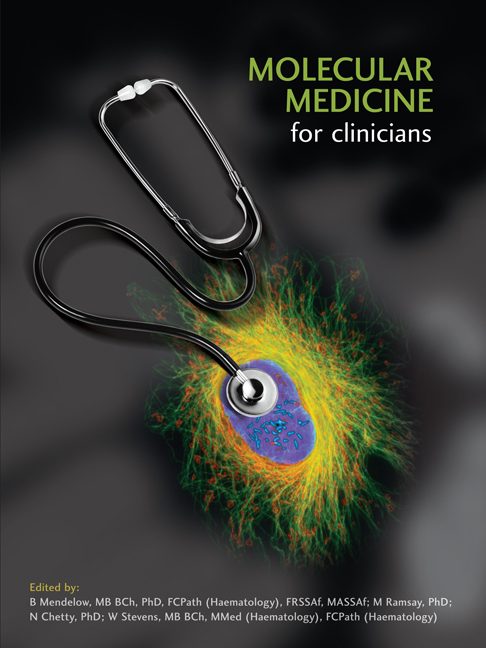
- Publisher:
- Wits University Press
- Online publication date:
- June 2019
- Print publication year:
- 2008
- Online ISBN:
- 9781868147137
Last updated 10th July 2024: Online ordering is currently unavailable due to technical issues. We apologise for any delays responding to customers while we resolve this. For further updates please visit our website https://www.cambridge.org/news-and-insights/technical-incident


The insights following the wake of the Human Genome project are radically influencing our understanding of the molecular basis of life, health and disease. The improved accuracy and precision of clinical diagnostics is also beginning to have an impact on therapeutics in a fundamental way. This book is suitable for undergraduate medical students, as part of their basic sciences training, but is also relevant to interested under and postgraduate science and engineering students. It serves as an introductory text for medical registrars in virtually all specialties, and is also of value to the General Practitioner wishing to keep up to date, especially in view of the growing, internet assisted public knowledge of the field. There is a special focus on the application of molecular medicine in Africa and in developing countries elsewhere.
 Loading metrics...
Loading metrics...
* Views captured on Cambridge Core between #date#. This data will be updated every 24 hours.
Usage data cannot currently be displayed.